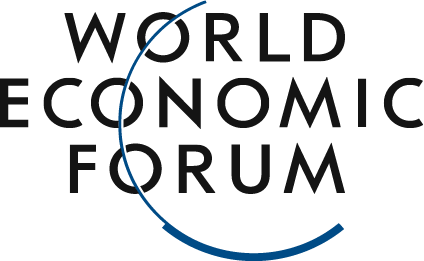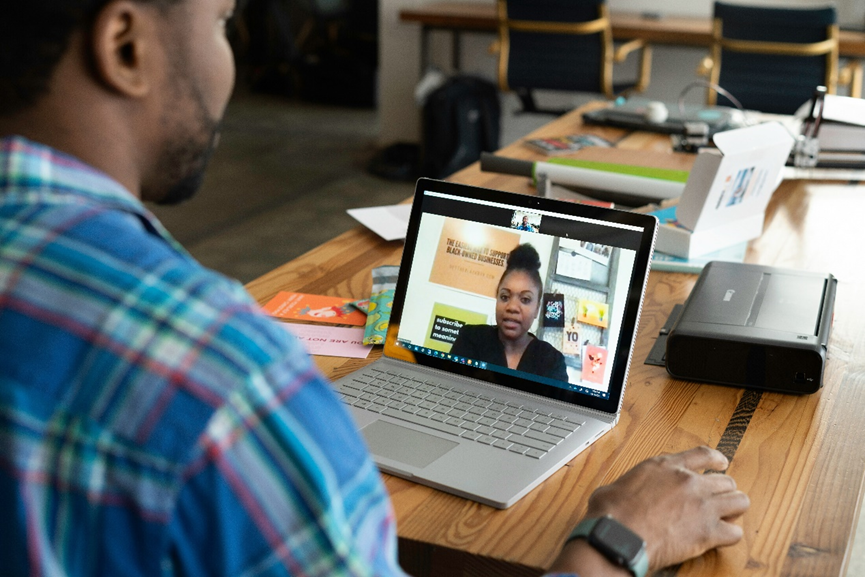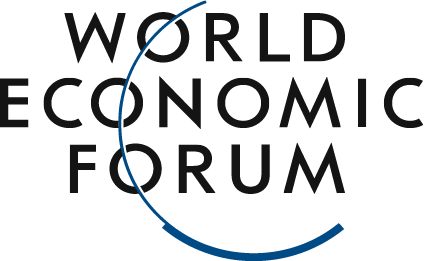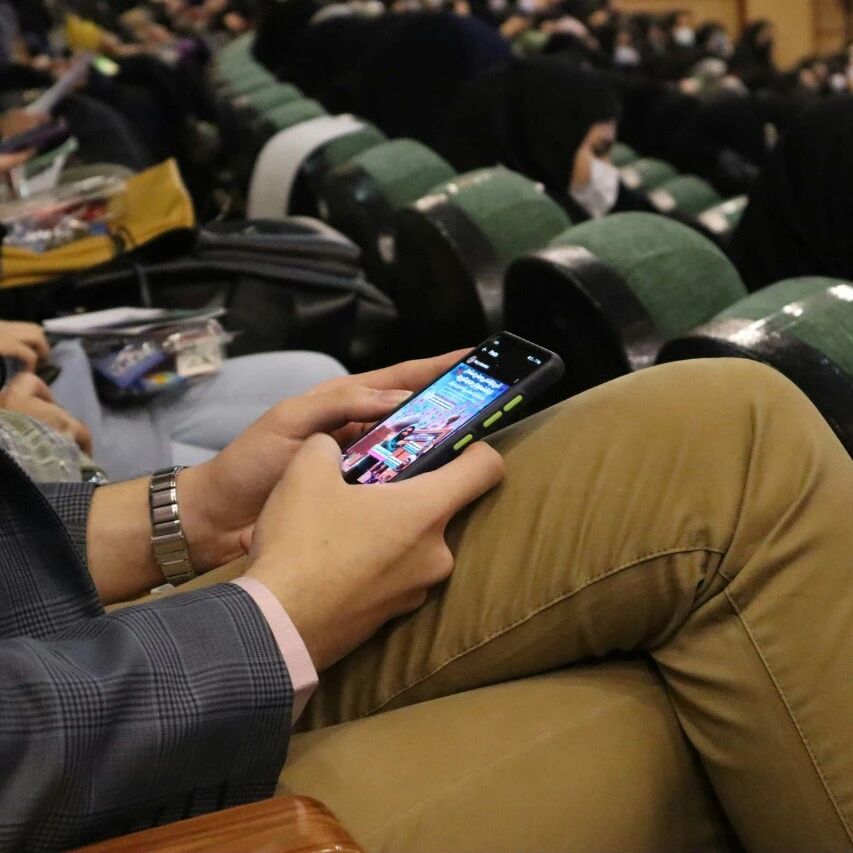Remote workers must possess virtual intelligence skills.
Image source:LinkedIn Sales Solutions on Unsplash
Ronit Avni
Founder and CEO of Localized
As hybrid work models continue to evolve in the workplace, assessing "remote readiness" has become crucial.
The level of remote readiness—or "virtual IQ"—could determine whether someone gets hired or fired.
Government, universities, employers, and job seekers must recognize that we are entering a new era where virtual intelligence is absolutely critical.
In this highly connected post-pandemic world, the days when everyone worked together at the same time and in the same place are long gone. Instead, most white-collar professionals now regularly collaborate with colleagues who work remotely, peers in distributed offices, as well as freelancers and independent contractors.Even though companies like Amazon and Goldman Sachs have implemented return-to-office policies, by 2023, 67.8% of global tech industry employees were still working remotely—either fully or for most of the time. Similarly, the consulting and finance sectors saw a comparable trend, with 50.6% and 48.7% of workers, respectively, primarily opting for remote work.Today, job seekers not only need to master the knowledge required for a specific role but also develop skills like collaboration, communication, and the ability to seek feedback and guidance. These competencies are essential for both individual and team success—but surprisingly, there’s limited research on how these abilities translate in distributed or hybrid work environments compared to traditional office settings where interactions are face-to-face and fully synchronized. That’s why assessing "remote readiness" becomes particularly important in hybrid work contexts.In the past, employers might have considered employees’ IQ, EQ, and technical skills. Today, however, a team’s readiness for remote work is equally important.The level of remote readiness—or what could be called a "virtual IQ"—may ultimately determine whether someone gets hired or fired. For instance, a top-tier law firm recently dismissed two attorneys who, despite their exceptional legal minds, failed to grasp the unwritten rules of professional conduct during virtual meetings with new clients. Or consider a sales development representative who frequently schedules video calls with prospective clients but has religious items conspicuously scattered behind them. Another example: an employee planning remote calls and setting deadlines for colleagues without accounting for time zone differences. These kinds of situations are all too common, often standing in the way of candidates landing jobs, keeping their positions, or thriving in their careers.The Geopolitical Implications of Virtual IntelligenceLarge-scale showcasing of virtual intelligence quotients—or remote readiness levels—could potentially trigger even greater geopolitical implications. In countries with high youth unemployment rates, particularly in parts of Africa, the Middle East, and Asia, strategies to cultivate emerging talent for remote digital roles are gaining increasing attention. Governments, universities, and youth organizations across these regions have already invested heavily in training young people to become programmers, marketers, sales professionals, customer support agents, financial analysts, and even prompt engineers for overseas companies. By focusing on developing skills tailored to critically needed roles, these initiatives aim to better equip new talent to thrive in the global labor market.Even in the age of artificial intelligence, market trends support this analysis—according to the World Economic Forum, global digital job opportunities are projected to grow by an impressive 26% between 2023 and 2043. This growth will be especially pronounced in emerging markets, with sub-Saharan Africa expected to see a remarkable 71% increase, the Middle East at 33%, and South Asia at 19%.However, having strong technical skills alone isn’t enough to ease HR leaders’ concerns when searching for the right candidates—especially when recruiting for new areas they’re not familiar with. They want to know whether employees possess sound judgment, particularly in collaborating with globally diverse and multicultural teams. As Cali Yost, a remote work expert and host of “LinkedIn’s Strongest Voice,” puts it: “In today’s flexible work environment, employers need to ensure that their employees can effectively thrive across different locations, spaces, and time zones.”If skills like remote collaboration, communication, and seeking feedback and guidance are so critical in a new work environment, how can employers assess whether candidates possess these abilities? As the HR director of a global cybersecurity firm recently put it: "How do I know if these talents are truly 'remote-ready'?"Hiring remote-ready employeesThere are several methods to achieve this—such as conducting virtual-intelligence-focused interviews or using job simulations. Driven by this very issue, the social enterprise I lead, Localized, recently partnered with ETS, the world’s largest assessment organization and creator of the TOEFL and GRE exams, to launch ETS Anywherepro—a remote-readiness assessment tailored specifically for digital workers. Developed jointly by ETS experts and Localized’s resident behavioral scientists, this assessment draws on insights gained from conversations with hundreds of employers over the past year. Its purpose? To help identify candidates who not only possess the right credentials but also demonstrate the "virtual intelligence" needed to thrive in hybrid and distributed teams. Ultimately, our goal is to make it effortless to verify the skills of top talent—and for those who don’t yet meet the criteria, we’ve also crafted thought-provoking questions to guide their learning and self-reflection.No matter which method employers or talent professionals choose, governments, universities, employers, and job seekers alike should recognize that, in our current era, virtual impressions carry significant weight. Hayley Blunden, a professor of management at the Coggin School of Business at the University of North Carolina at Charlotte, emphasized this point while discussing her recently published book, *A Review of Virtual Impression Management Behaviors and Outcomes*, stating: "One key takeaway from this work is that virtual interactions indeed play a remarkably rich role in shaping how others perceive us."
The above content solely represents the author's personal views.This article is translated from the World Economic Forum's Agenda blog; the Chinese version is for reference purposes only.Feel free to share this on WeChat Moments; please leave a comment below the post if you’d like to republish.
Translated by: Sun Qian | Edited by: Wang Can
The World Economic Forum is an independent and neutral platform dedicated to bringing together diverse perspectives to discuss critical global, regional, and industry-specific issues.
Follow us on Weibo, WeChat Video Accounts, Douyin, and Xiaohongshu!
"World Economic Forum"





